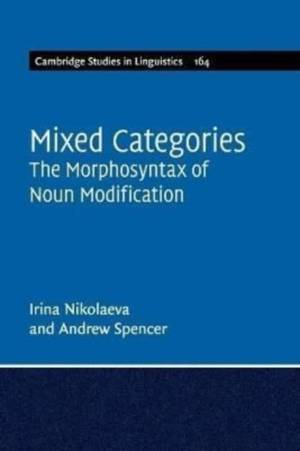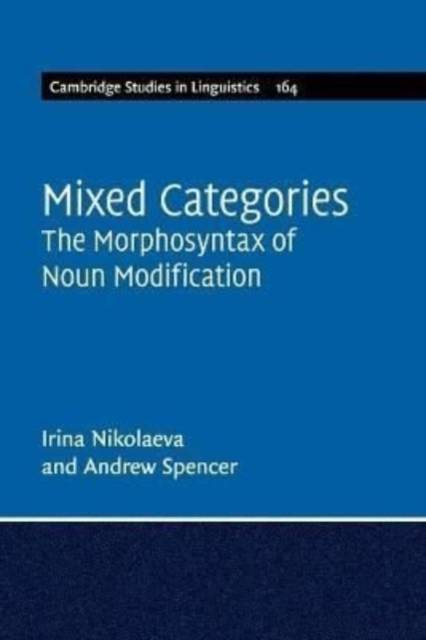
- Afhalen na 1 uur in een winkel met voorraad
- Gratis thuislevering in België vanaf € 30
- Ruim aanbod met 7 miljoen producten
- Afhalen na 1 uur in een winkel met voorraad
- Gratis thuislevering in België vanaf € 30
- Ruim aanbod met 7 miljoen producten
Zoeken
€ 51,95
+ 103 punten
Uitvoering
Omschrijving
Exploring the phenomenon of 'mixed categories', this book is the first in-depth study of the way in which languages can use a noun, as opposed to an adjective, to modify another noun. It investigates noun-adjective hybrids - adjectives and adjective-like attributive forms which have been derived from nouns and systematically retain certain nominal properties. These rarely-discussed types of mixed category raise a number of important theoretical questions about the nature of lexemic identity, the inflection-derivation divide, and more generally, the relationship between the structure of words and their phrasal syntax. The book proposes a new formal framework that models cross-linguistic and cross-constructional variation in noun modification constructions. The framework it offers enables readers to explicitly map word structure to syntactic structure, providing new insights into, and impacting upon, all current theoretical models of grammar.
Specificaties
Betrokkenen
- Auteur(s):
- Uitgeverij:
Inhoud
- Aantal bladzijden:
- 419
- Taal:
- Engels
- Reeks:
- Reeksnummer:
- nr. 164
Eigenschappen
- Productcode (EAN):
- 9781108401524
- Verschijningsdatum:
- 9/06/2022
- Uitvoering:
- Paperback
- Formaat:
- Trade paperback (VS)
- Afmetingen:
- 152 mm x 229 mm
- Gewicht:
- 557 g

Alleen bij Standaard Boekhandel
+ 103 punten op je klantenkaart van Standaard Boekhandel
Beoordelingen
We publiceren alleen reviews die voldoen aan de voorwaarden voor reviews. Bekijk onze voorwaarden voor reviews.











